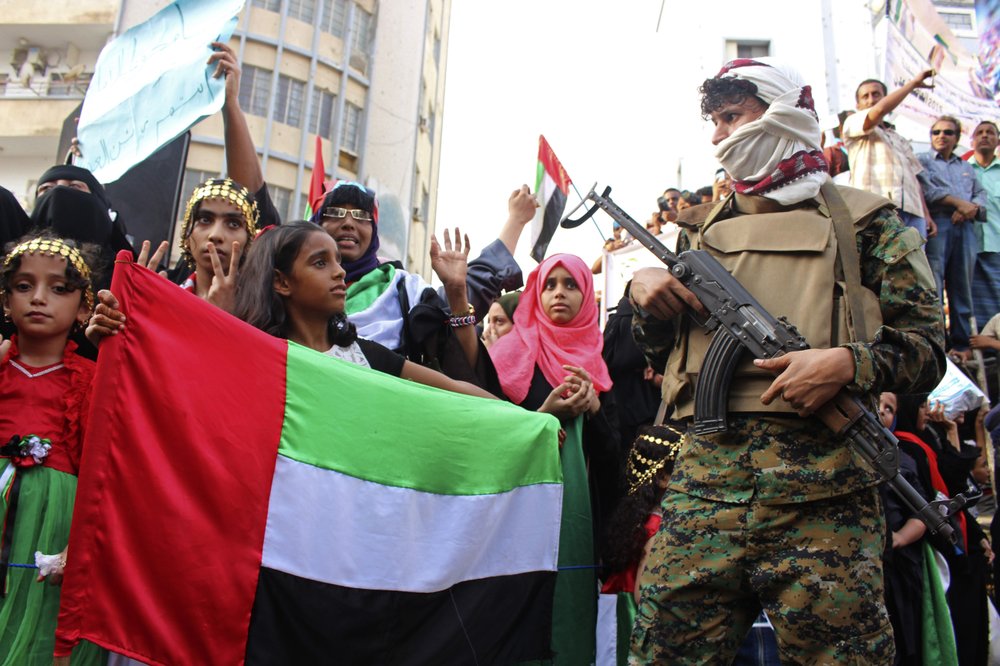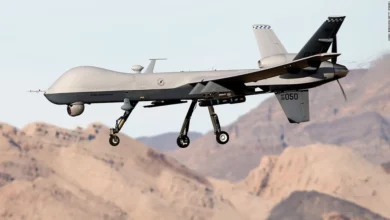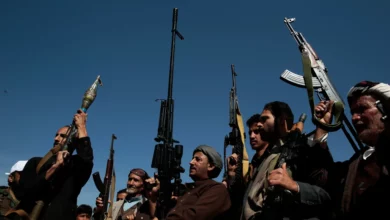Sanaa – With President Ali Abdullah Saleh’s absence from Yemen lingering on, opposition leaders and anti-government protesters are, once again, accusing the regime of fomenting violence in provincial parts of the country for reasons of political expedience.
Presidential information secretary Ahmed al-Sofi on Sunday said Saleh plans to appear in the media within 48 hours for the first time since departing the country to receive treatment in Saudi Arabia for wounds sustained during a 3 June attack on his presidential palace.
Clashes raged in the capital with intense shelling and sniper fire for the three weeks preceding the attack. But since Saleh left the country, violence in Sanaa has abated.
The urban warfare pitted Saleh loyalists against forces led by Sheikh Sadiq al-Ahmar, a powerful tribal leader and former Saleh ally. No opposition members, however, attribute these clashes to a government-orchestrated conspiracy. The violence was, analysts believe, a genuine struggle for power in the epicenter of Yemen’s political scene.
Several cities in the south, however, suffer from rampant violence as a result of government assaults on various groups. Mohammed al-Sabry, a leader of the Joint Meeting Parties (JMP), the opposition’s most robust political bloc, told Al-Masry Al-Youm the current regime is utilizing the violence to garner international support.
“They [the regime] are using the violence in strategic places in the country that will concern the world; using Al-Qaeda now is to show the West the regime is the only way to fight them,” said Sabry.
“Those who are left from the regime…are implementing the same strategy of terrifying the people and leading the country into violence,” he added.
In a particularly brazen move, Al-Qaeda in the Arabian Peninslua (AQAP) last Wednesday purportedly coordinated a jailbreak in Mukalla that set free 63 group members.
“They [those who escaped] are all under the age of 30. Some were sentenced to death, some were about to be released after four months, and some were about to be released after 20 days…we don’t know why they really escaped,” Khaled al-Daimi, governor of Hadhramaut, told Al-Masry Al-Youm.
Daimi says the AQAP members exited through a tunnel 35 meters deep and 40 meters wide. All those who escaped successfully, he added, were held in one particular sector of the facility.
“They went out of their tunnel and slaughtered the guard to take his weapon,” said Daimi. “The investigations will give us more details on whether they had any weapons inside the jail or not.”
In Arhab, a district only 3km from Sanaa International Airport, 17 civilians have been killed and 35 injured in recent months from warfare between dissident tribes and the Republican Guard. The violence started in late April but stopped for weeks until resuming again on Friday.
Government shelling reportedly destroyed 84 houses and eight water wells on Friday while displacing almost one thousand families. Tribal groups also exploded five armored vehicles in Arhab on Monday.
“Arhab is so close to the airport which is so dangerous,” said Arhab journalist Ahmed Aeid. “If the landing part [of the airport] is shelled, the airport will shut down completely.”
Political analyst Ahmed Al-Zurqa told Al-Masry Al-Youm the spate of clashes in different cities is an effort to avenge the attack on Saleh.
”Sanaa took its share of violence. Even the [Ahmar] truce between the tribes and the state is weak,” said Zurqa. “The regime now tries to distribute the violence on more cities and to use the violence to protect regime interests.”
In Taiz, the location of the first anti-government protest, Republican Guards continue to assault the central square in an attempt to clear the premises where demonstrators have held their sit-in for months.
“What’s happening in Taiz is that the regime is implementing a group punishment on the protesters to ruin their peaceful protest…and to make Taiz a city full of armed people instead of a civil city full of human rights and educated groups,” said Zurqa.
Gunfire rang out in the southern city of Aden, a city close to AQAP-held Abyan, on Friday during a funeral for Ahmed al-Darwish, a 19-year-old killed recently by state security. A son of a local protest leader was killed during the funeral and seven others were wounded, locals said.
“The regime is planning to turn Aden into an AQAP center as it’s so close to Abyan,” said Zurqa. “They will make it easy for armed people to enter Aden from Abyan and Shabwa to…put pressure on the US to support them.”
In Sanaa, more than 16 hours of blackouts daily, dramatic price increases and oil and gas shortages are also attempts by the government to distract attention away from Yemen’s political turmoil, analysts say.
“The regime is trying to spread hatred among Yemenis and turn their attention to their basic needs instead of seeking democracy and human rights,“ said Zurqa.
But the state hasn’t stayed on the sidelines of leveling accusations. They blame the opposition of creating chaos and depriving the public of basic needs through exploding power lines in Mareb Governorate. State TV recently listed 43 names of JMP members and Mareb tribal figures wanted for exploding the lines while also placing financial rewards for information on the whereabouts of the accused.
The first name on the list is Ali Jaber al-Shabwani. The well-known sheikh’s son, Ahmed, told Al-Masry Al-Youm his father was responsible for sabotaging oil pipelines in the region because the regime receives exorbitant profits from the industry and doesn’t allow the population to benefit.
“We have been seeking justice for more than ten months, but the state didn’t respond so my father exploded the oil lines,” said Ahmed. “But we never harm a public interest such as the power lines.”
Ahmed also confirmed his father still lives without hiding from public view. The state, according to Ahmed, knows his father’s location but elects not to apprehend him. Ahmed says disclosing the list is merely a ploy.
UN Security Council envoys are set to arrive in Yemen on Monday to participate in a ten-day investigation on human rights violations perpetrated over the past five months of unrest in the country.




